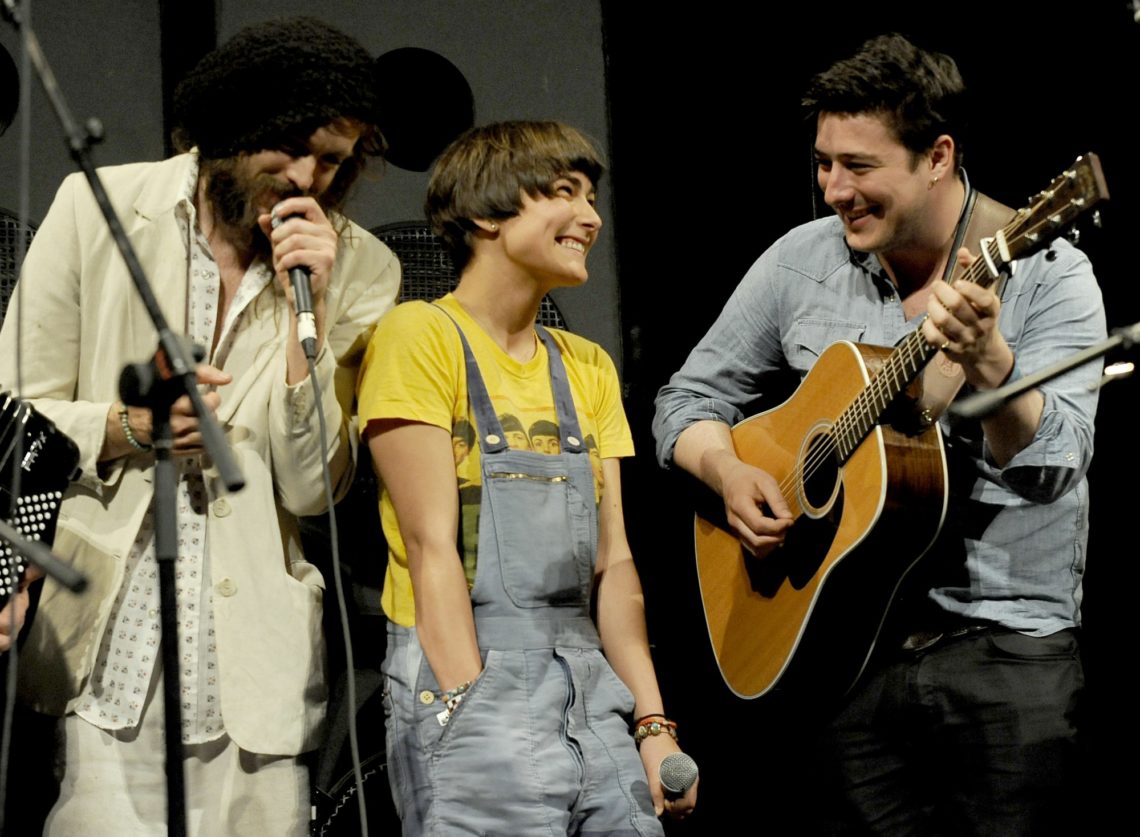This is the third instalment of Drew Austin’s VICE column, MILLENNIAL PAUSE. Read his previous column here and in each issue of VICE Magazine—subscribe here.
It’s better to burn out than to fade away, Neil Young once sang. Today, millennials face a different quandary: Is it better to be remembered as cringe, or forgotten altogether? Never mind how you answer; you probably won’t get to choose. Or worse: You might get both.
In August, a viral tweet that posited “Home” by Edward Sharpe and the Magnetic Zeros as the “worst song ever made” exploded into a weeks-long internet conversation revolving around a brief clip of the band’s 2010 Tiny Desk performance. It wasn’t just that the song was bad (and maybe it wasn’t even bad) but how it was bad: Why did the singers look that way, and why were they dancing like that? Were they hipsters or hippies or something else? Was this music “stomp clap hey” or garden variety indie rock or pop music or some other genre? Above all, why were they so cringe? Was it revisionist to say we knew this was bad at the time, or to claim that it was actually good and we all just forgot? Were you the type of millennial who acted and looked like this back then, or did you know better, or were you lucky enough to have missed it completely? What was even going on in 2010?
STOMP CLAP HEY | noun
1. A subgenre of festival-friendly folk rock popularized in the mid-2010s by off-duty baristas singing mandolin shanty songs called things like “Mosey On, Little Bindle Boy” for mawkish cellphone commercials and people bravely battling through hangovers at Sunday morning farmers’ markets.
What was going on in 2010? The viral “Home” tweet suggested that nobody was quite sure, even those who had experienced it firsthand. I wasn’t so sure myself. When I hear 2010 mentioned, nothing immediately comes to mind; I didn’t remember “Home” off the top of my head when it suddenly resurfaced. At least, I’d never consciously thought about it, but both the band’s name and the song itself were immediately familiar as soon as I listened, unleashing a flood of buried associations from that time period, like a geriatric millennial madeleine I’d just bitten into—all those craft cocktails, the man buns, the Edison bulbs.
It alarmed me to see how quickly all that had been memory-holed—and how poorly historicized the millennial heyday is turning out to be. 2010 is only 15 years in the past, after all. That’s not very long ago! Imagine a group of Gen X-ers watching a Nirvana video in the late 00s and arguing about what the 90s had been like—or better yet, discussing something more dated, like a third-wave ska video. Whether or not Gen X disagreed about the quality of their era’s various legacies, they at least knew that they were supposed to know about them. The prevailing narratives and the lore have long been established.
The cultural counterpoint to Edward Sharpe and the Magnetic Zeros is MGMT, whose 2007 hit “Kids” seems to go viral every few weeks–particularly that video of the band performing the song on a Wesleyan quad. Like Edward Sharpe and the Magnetic Zeros, the MGMT footage seems to document a happier, less self-conscious moment, a culture not yet poisoned by iPhones and Instagram. Unlike “Home,” however, “Kids” never went away at all—it has been a stable presence in the musical landscape for nearly 20 years. Millennials are proud to claim it as part of their legacy, and rightly so. But the song exemplifies the same dynamic as “Home,” reappearing each time as free-floating viral content—engagement bait stripped of its original context, encountered with fresh eyes as evidence of a lost millennial culture by people who ought to remember it better.
“One would think the internet had found the sole remaining relic of a long-lost civilization.”
This attests to a culture that is unable to process its own past and move forward—a culture that either refuses to grow up, or can’t for structural reasons, like millennials themselves. It’s hard to be nostalgic for what you don’t even remember. With mass media in decline and digital platforms having taken their place, reliable narrators and shared reality are elusive, replaced by atomized units of content that vanish and reappear in an endless cycle. On the internet, it’s safe to assume that no one really remembers anything; reposting whatever you do remember with a caption like “I still think about this constantly” is thus a reliable engagement strategy.
The “rediscovery” of Edward Sharpe and the Magnetic Zeros was only possible once they had been forgotten. Notably, nothing new had actually happened in order to trigger the discourse, which expanded as if filling a void and then lasted much longer than it should have. One would think the internet had found the sole remaining relic of a long-lost civilization. It’s only a matter of time—weeks, probably—before someone goes viral posting a clip of Garden State wondering if people really used to act that way. Or maybe the same Edward Sharpe video will simply go viral again, already cleared from our collective short-term memory and primed for a fresh cycle.

It would be a mistake to claim that this ahistorical perspective means millennial culture has been erased. If anything, the opposite is true, as MGMT’s constant recurrence suggests (also, the platforms themselves are millennial culture). But it does seem to have entered a kind of purgatory, no longer vital but unable to enjoy a peaceful afterlife. The lineups of countless music festivals, from Coachella on down, remain dominated by artists who might have headlined them in 2010, and the perpetual circulation of digital content enables that. We no longer view this music as “oldies,” but encounter it as eternally new, untethered from any bygone era. Even the setting of the “Home” performance supports this atemporality: NPR’s Tiny Desk continues to this day, relatively unchanged—the perfect vehicle for short units of content that circulate well on social media, with few contextual clues that might date them other than the performers themselves.
As internet users ridiculed “Home,” others responded, “Yes, it was cringe, but at least we were having fun!” Indeed, cringe is a recent concept, only possible in a social media panopticon where so much of life is recorded, voluntarily or not, and broadcast to a wider audience. To be cringe is to be caught in a misguided earnestness, and is more likely when you don’t expect to be observed. As Jeremy Gordon writes, “everything is ‘cringe’ from the right perspective.” 2010 is thus a perfect reference point: the year Instagram launched, with smartphone adoption rapidly growing but still far from the saturation point—the twilight of unself-consciousness. Older millennials were caught on the wrong side of this divide, living their formative years in a time that was increasingly documented for social media without thinking to posture for it. The “Home” Tiny Desk performance, then, could be the most cringe artifact from the most cringe period in human history, the late 00s and early 10s: years that comprised one final outburst of earnest optimism under the nascent digital spotlight. When we use the same spotlight to rediscover that culture 15 years later, in 2025, who should be more embarrassed—them or us?
Subscribe to Drew Austin’s KNEELING BUS newsletter on Substack
This is the third instalment of Drew Austin’s VICE column, MILLENNIAL PAUSE. Read his previous column here and in each issue of VICE Magazine—subscribe here.
The post An Obituary for Edward Sharpe, the Magnetic Zeros, and Earnestness appeared first on VICE.




